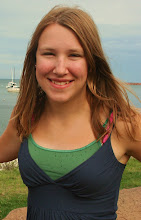Passage W Outline
I. Introduction
Thesis: In the passage from The War in Eastern Europe, John Reed creates an exciting mood that contradicts the actual dismal circumstances in order to promote the universal theme that war often causes soldiers to lose their emotional health.
II. Body
a. Exciting mood
i. Fast paced
1. “We were off!”
2. Constantly in new places: Novo Sielitza, Romania, Bucovina
3. Even the slow horse ride, waiting for Ivan happens fast for the reader
ii. Adrenaline
1. Lots of descriptions
2. Flowing sentences, ideas shifting constantly
3. Even riding to war, these men are happy- joking about Ivan
4. Feel powerful- compare self to “Zeus”
b. Mood contradictory to events
i. Descriptions don’t make sense
1. Cannon is “leisurely”
2. Soldiers are dying, being shot at, described as “minute figures running about”
3. “Puffs of smoke unfolding” instead of homes being destroyed
4. No emotional attachment or realization about horrors of war
ii. Descriptions lack emotion
1. Wounded come in “steady stream”
a. Natural, positive connotations
b. Plentiful, positive connotations
2. Go through village of “great brown soldiers,” implies less than human, not seen as individuals
c. Theme- loss of emotional health
i. Soldiers often return from war with PTSD, can’t live with transition from pressures of war
ii. Living surrounded by death and destruction is hard
iii. Soldiers compensate by not allowing themselves to really feel the effect of their experiences
1. Notice towers “dazzling in the sun”
2. Don’t really describe the wounded or dead as individuals, just something in the background to notice, not care about
iv. Mood exciting because soldiers filled with adrenaline, focused on action, ignoring feelings- cause destruction to emotional health
III. Conclusion
Thursday, April 30, 2009
Subscribe to:
Comments (Atom)
